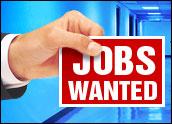 Sioux Falls Regional Airport Joins TSA Screening Partnership Program
Sioux Falls Regional Airport Joins TSA Screening Partnership ProgramAug 02, 2005 By News Staff
The Transportation Security Administration (TSA) last week approved
Sioux Falls Regional Airport in South Dakota for participation in the
Screening Partnership Program (SPP). TSA also announced that 34
companies have been approved as qualified vendors, eligible to compete
to provide passenger and baggage screening services for the airports
that are approved for the SPP.
Starting this fall, the Sioux Falls airport will begin the transition
from federal TSA security screeners to using screeners employed by a
qualified private company. Under the SPP, the federal security director
(FSD) is still responsible for security at the airport and for
maintaining TSA security standards.
"TSA is pleased to announce the approval of Sioux Falls Regional
Airport for the Screening Partnership Program," said Kenneth Kasprisin,
acting assistant secretary of homeland security for TSA. "TSA is ready,
willing and able to work with any airport that makes the local decision
to apply to the program."
TSA assumed responsibility for aviation security in February 2002. By
November 2002, a federal work force was hired, trained and deployed to
screen passengers at 424 commercial airports. Under a pilot program
required by the ATSA, TSA selected airports in five cities to have
screeners employed by qualified private companies: San Francisco;
Kansas City, Mo.; Rochester, N.Y.; Tupelo, Miss.; and Jackson, Wyo.
Private screening companies may only hire employees who meet the same
requirements as federal screeners. Like federal screeners, private
screeners must be U.S. citizens, have a high-school diploma or the
equivalent, be proficient in English, and pass a 10-year FBI background
check.
In addition, all private screeners undergo 40 hours of classroom
training and 60 hours of on-the-job training on the same standard
operating procedures as federal screeners. This means that the private
screeners at San Francisco International Airport, for example, operate
under the same security procedures as federal screeners at other
airports.
In 2004, as required by law, TSA analyzed the pilot program to
determine if the private screeners delivered the same level security
and customer service as federal screeners. TSA hired independent
consultants to conduct a study, and it was determined that the private
screeners were able to meet the same standards.
Based on this conclusion, airport operators in November 2004 were able
to begin applying to TSA to have screening performed by a qualified
private company.


1 comment:
Surreal is good! :)
Post a Comment